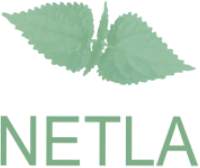Netla – Online Journal on Pedagogy and Education: Special edition 2013 – Research and education is publisehd by Netla – Online Journal on Pedagogy and Education and the School of Education. Editorial board members were Ólöf Garðarsdóttir (editor), Helgi Skúli Kjartansson, Jóhanna Thelma Einarsdóttir, Robert Berman and Torfi Hjartarson. Sigríður Kr. Hrafnkelsdóttir was responsible for the project management of the publication.
There are seven articles in the special issue (two in English) all of which are peer-reviewed. In addition to a general manuscript review, they are read by the editorial board and peer-reviewed by two experts in the field of the subject. At least one of the experts does not work in the same field as the authors of the articles. Full anonymity is maintained during the peer review.
Published 31.12.2013
Articles
Gyða Jóhannsdóttir og Jón Torfi Jónasson
The Development Dynamics of a Small Higher Education System: Iceland – a case in point
The article intends to answer three questions: 1. To what extent can it be assumed that HE develops in essentially the same way in a very small system as in larger or even much larger systems? 2. Does Icelandic HE present significantly different drivers of change than larger systems for which comparable data exist? 3. Can specific development problems be identified in a small system that do not come to the fore in the larger systems? The data stems from the available literature as well as various official documents and statistical data banks.
Nichole Leigh Mosty, Samúel Lefever, Hrafnhildur Ragnarsdóttir
Parents’ perspectives towards home language and bilingual development of preschool children
Parents in households where more than one language is spoken are faced with decisions regarding their children’s language upbringing. The purpose of the study was to explore parents’ perspectives about their children’s home language and bilingual development and how they facilitated language development in the home. Results indicated that these parents had overwhelmingly positive perspectives both about their children’s home language use and their Icelandic language development.

